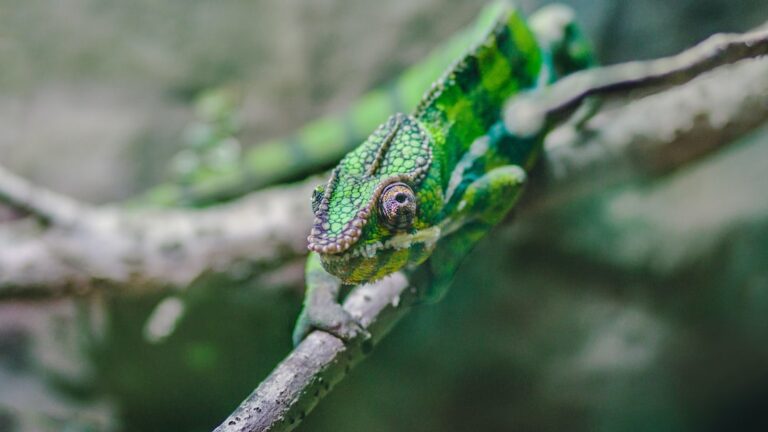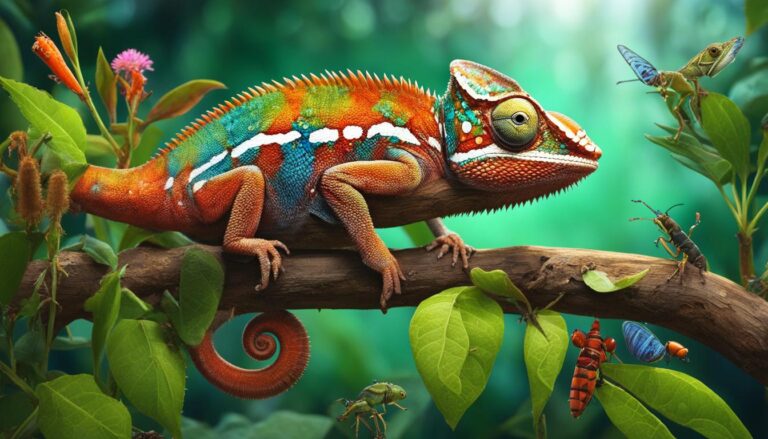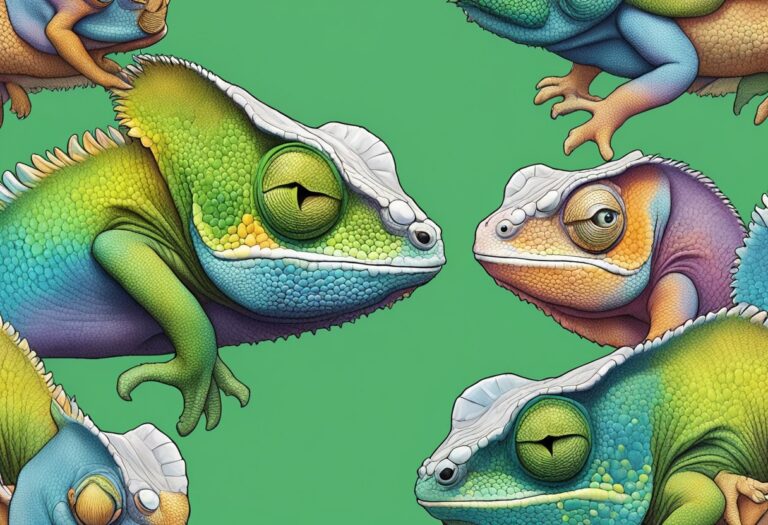Can Chameleons Eat Blueberries?
Chameleons are fascinating creatures known for their ability to change color and blend into their surroundings. They are also known for their unique dietary needs. Chameleons are insectivores, meaning they primarily eat insects. However, a balanced diet is crucial for their overall health and well-being.
Table of Contents
Blueberries: Nutritional Value and Benefits for Humans
Blueberries are often hailed as a superfood due to their high nutritional content and numerous health benefits for humans. They are packed with vitamins, minerals, and antioxidants that can support overall health. Blueberries are low in calories but high in fiber, making them a great choice for weight management. They also contain compounds that have been shown to improve brain function and reduce the risk of chronic diseases such as heart disease and cancer.
Can Chameleons Safely Consume Blueberries?
While blueberries offer many benefits for humans, it is important to consider whether they are safe for chameleons to consume. Research on chameleons and blueberries is limited, but some studies suggest that chameleons can safely eat small amounts of blueberries as part of a balanced diet. However, there are several factors to consider before feeding blueberries to chameleons.
Understanding Chameleons’ Digestive System
To understand whether blueberries are safe for chameleons, it is important to understand their digestive system. Chameleons have a unique digestive system that is adapted to their insectivorous diet. Their digestive tract is relatively short, which means they have a limited ability to break down and absorb plant matter. This can make it difficult for them to digest certain fruits and vegetables.
Potential Risks of Feeding Blueberries to Chameleons
Feeding blueberries to chameleons can pose some potential risks. One of the main concerns is the high sugar content of blueberries. Chameleons have a low tolerance for sugar, and consuming too much can lead to digestive issues and obesity. Additionally, the high water content of blueberries can cause diarrhea in chameleons if consumed in excess. It is also important to note that some chameleons may have allergies or sensitivities to certain fruits, including blueberries.
What Other Fruits and Vegetables Can Chameleons Eat?
While blueberries may not be the best choice for chameleons, there are plenty of other fruits and vegetables that they can safely consume. Some safe options include papaya, mango, strawberries, and leafy greens such as kale and collard greens. These foods provide essential vitamins and minerals that chameleons need to thrive.
Tips for Introducing Blueberries into a Chameleon’s Diet
If you decide to introduce blueberries into your chameleon’s diet, it is important to do so gradually. Start by offering a small piece of blueberry and monitor your chameleon’s reaction. If they tolerate it well, you can gradually increase the amount over time. It is also important to offer a variety of other foods to ensure a balanced diet.
How Often Should Blueberries be Fed to Chameleons?
Feeding blueberries to chameleons should be done in moderation. While they can be a healthy addition to their diet, they should not make up the majority of their food intake. Aim to feed blueberries as a treat or occasional snack rather than a staple food. It is important to balance their diet with other foods such as insects and leafy greens.
Common Mistakes to Avoid When Feeding Chameleons Blueberries
When feeding chameleons blueberries, there are some common mistakes that should be avoided. One mistake is feeding them too many blueberries at once, which can lead to digestive issues. It is also important to avoid feeding them blueberries that are overripe or moldy, as these can be harmful to their health. Lastly, it is crucial to monitor your chameleon’s reaction to blueberries and discontinue feeding them if any negative symptoms occur.
Balancing a Chameleon’s Diet with Blueberries and Other Foods
In conclusion, while blueberries can offer some nutritional benefits for chameleons, they should be fed in moderation and as part of a balanced diet. It is important to consider the unique digestive system of chameleons and their specific dietary needs. By offering a variety of safe fruits, vegetables, and insects, you can ensure that your chameleon receives the nutrients they need to thrive.
If you’re curious about the eating habits of chameleons, you might also be interested in learning about the fascinating behavior of turtles. Did you know that turtles sometimes slap each other? It’s true! Find out why turtles engage in this peculiar behavior and what it means by checking out this intriguing article: Why Do Turtles Slap Each Other?






